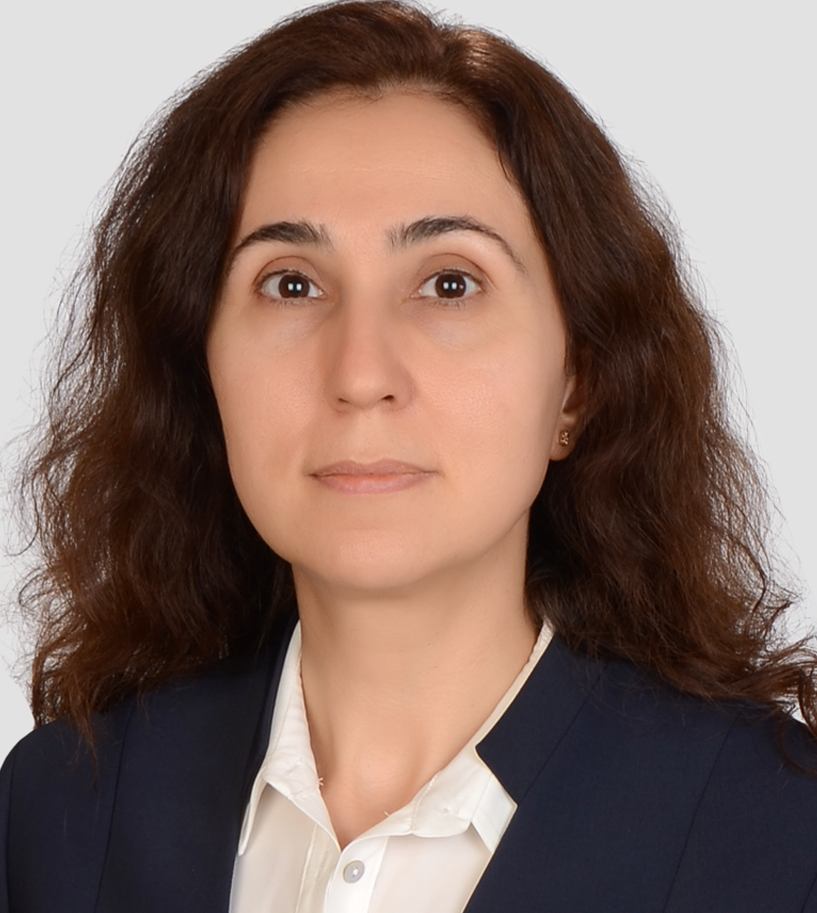Theme: Advancements and Breakthroughs in Digestive and Metabolic Diseases Medicine
Digestive Diseases Congress 2018
- Digestive Diseases Congress 2018
- TARGET AUDIENCE
- SESSIONS/TRACKS
- MARKET ANALYSIS
- PAST CONFERENCES
- KEYNOTE SPEAKERS
- CHAIRS/CO-CHAIRS
- MODERATORS
- SPONSORS/EXHIBITORS
- MEDIA PARTNERS
- UNIVERSITIES
 The Final program is Updated. Slots areavailable for Delegates...
The Final program is Updated. Slots areavailable for Delegates...
Conference Series LLC Ltdwelcomes you to attend the 4th World Congress on Digestive & Metabolic Diseasesduring October 29-30, 2018 at San Francisco, USA . We cordially invite all the participants who are interested in sharing their knowledge and research in the arena of Digestive and Metabolic Diseases with the theme"Advancements and Breakthroughs in Digestive and Metabolic Diseases Medicine"
Digestive Diseases Congress 2018
meetingcreates a platform for Doctors, Scientists, Researchers, Professors, Assistant Professors and Students to present theirlatest research on Various Digestive Diseases and learn about all the important developments inVarious Techniques. Digestive Diseases aims to discover advances in health practice, management and education in relation to health disparities as well as a breadth of other topics such as therapeutics, diagnostics of Various Digestive and Metabolic Diseases.
Digestive Diseases Congress 2018
is an excellent opportunity for the delegates from Universities and Institutes to interact with the world class Scientists. Major topics discussed are Biliary Tract Diseases, Colorectal Diseases,Functional GI and Motility Disorders, Inflammatory Bowel Diseases,Liver Diseases and Transplantation,Micro biome in Gastrointestinal and Liver Diseases, Obesity and Diabetes, Pancreatic Diseases, Paediatric GI and Nutrition, Stomach and Small Bowel Disorders,Gastrointestinal Oncology,Technologies and Procedural Innovations.
Target Audience
will be personnel from both Doctors and academic fields which include CEO, Directors, Vice Presidents, Co-directors, Doctor’s, Managing Directors, Professor’s, Scientists, Doctorates, Assistant Professors, Post Doctorate Fellows, Managers, Pharmaceutical Scientists, Students from the related fields.
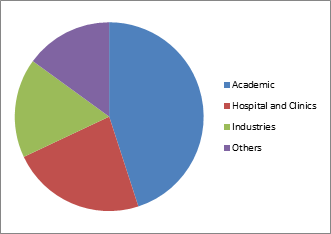
Track: 1 Basic Science
Digestive diseases are amid the leading fountainhead of doctor visits, hospitalizations, and abnormality in the United States each year. These conditions span a wide spectrum of disorders that affect the gastrointestinal (GI) tract, liver, gallbladder, and pancreas, as well as obesity and other nutrition-related disorders. Some digestive diseases, such as celiac disease, can be triggered by the body’s reaction to certain foods. Digestive diseases can cause serious complications ranging from severe pain to elevated risk of cancer to liver failure. The metabolic syndrome (MetS) is a crucial and mounting public-health and clinical challenge worldwide. MetS confers a 5-fold increase in the risk of type 2 diabetes mellitus (T2DM) and 2-fold the risk of developing cardiovascular disease (CVD) over the next 5 to 10 years. Further, patients with the MetS are at 2- to 4-fold increased risk of stroke, a 3- to 4-fold increased risk of myocardial infarction (MI), and 2-fold the risk of dying from such an event compared with those without the syndrome regardless of a previous history of cardiovascular events
Conference Titles:
Digestive Diseases Conferences; Metabolic Diseases Conferences; Obesity Conferences; Diabetes Conferences; Pancreatic Cancer Conferences; Liver Conferences; Gastrointestinal Disease conferences; Stomach Disease conferences; Endocrinology Conferences;
Track: 2 Obesity and Diabetes
Obesity is a state in which abnormal or excessive fat accumulation in adipose tissue impairs health and which may lead to Diabetes. In most cases, it is the outcome of energy intake exceeding energy outlay over a period of years. It is defined in adults as a body mass index (BMI) above 30. Within the UK the data from the Health Survey for England 2006 revealed that 24% of adults (both men and women) were obese and an auxiliary 44% of men and 34% of women were overweight. Around 16% of childr en aged 2 to 15 years were obese and an additional 14% were overweight. For those aged 2 to 10 years, 16.3% boys and 14.4% girls were obese. For those aged 11-15 years, 17.6% of boys and 19.0% of girls were obese.
The diet of an organism is what it eats, which is largely determined by the availability, the processing and palatability of foods. A healthy diet includes preparation of food and storage methods that preserve nutrients from oxidation, heat or leaching, and that reduce risk of foodborne illness.
A poor diet can cause deficiency diseases such as blindness, anemia, scurvy, preterm birth, stillbirth and cretinism; health-threatening conditions like obesity and metabolic syndrome and such common chronic systemic diseases as cardiovascular disease, diabetes, and osteoporosis. A poor diet can cause the wasting of kwashiorkor in acute cases, and the stunting of marasmus in chronic cases of malnutrition. Bariatric surgery act as an effective tool that provides long term weight-loss and which also help you to increase quality of health.
Conference Titles:
Digestive Diseases Conferences; Metabolic Diseases Conferences; Obesity Conferences; Diabetes Conferences; Pancreatic Cancer Conferences; Liver Conferences; Gastrointestinal Disease conferences; Stomach Disease conferences; Endocrinology Conferences;
Track: 3 Colorectal Diseases
The Disarray of lower gastrointestinal tract can be throbbing, abashing and even life-threatening. The root cause can be immensely hard to spot. The evidence of colon and rectal disease is nearly identical to other diseases, There is a prospective for misdiagnosis and mistreatment. Also study shows that patient treated by colon and rectal surgeons are likely to have colorectal cancer. Colorectal cancer annually hits about 140,000 people and causes 60,000 deaths, but is potentially curable if detected in its early stages. More than 90 percent of patients are over 40, at which point the risk of contracting the disease doubles every ten years.
Conference Titles:
Digestive Diseases Conferences; Metabolic Diseases Conferences; Obesity Conferences; Diabetes Conferences; Pancreatic Cancer Conferences; Liver Conferences; Gastrointestinal Disease conferences; Stomach Disease conferences; Endocrinology Conferences;
Track: 4 Functional GI and Motility Disorders
Functional GI and motility disorders generally cannot not be diagonised in a traditional way. Since there is no provocative, contagious or structural malformation. The term "functional" is commonly applied to disorders where the body's normal bustle in terms of the movement of the intestines, the responsiveness of the nerves of the intestines, or the way in which the brain steer some of these functions is weakened.
Around 25 million Americans have a functional GI disorder. FGIDs account for 40% of a gastroenterologist's practice. 50- 80% of persons with a functional GI disorder do not confer physicians, although they may take over-the-counter medications and report significantly higher rates of job or school absenteeism and disability.
Conference Titles:
Digestive Diseases Conferences; Metabolic Diseases Conferences; Obesity Conferences; Diabetes Conferences; Pancreatic Cancer Conferences; Liver Conferences; Gastrointestinal Disease conferences; Stomach Disease conferences; Endocrinology Conferences;
Track: 5 Inflammatory Bowel Diseases
Inflammatory bowel disease (IBD) represents an association of intestinal disorders that engender prolonged inflammation of the digestive tract. These are of two types: Ulcerative colitis and Crohn's disease. Ulcerative colitis causes long-lasting inflammation and sores (ulcers) in the innermost lining of large intestine (colon) and rectum.
Crohn's disease is characterized by inflammation of the lining of digestive tract, which often spreads deep into affected tissues. Both ulcerative colitis and Crohn's disease usually involve severe diarrhea, abdominal pain, fatigue and weight loss.
Conference Titles:
Digestive Diseases Conferences; Metabolic Diseases Conferences; Obesity Conferences; Diabetes Conferences; Pancreatic Cancer Conferences; Liver Conferences; Gastrointestinal Disease conferences; Stomach Disease conferences; Endocrinology Conferences;
Track: 6 Liver Diseases and Transplantation
The liver accomplishes many complex functions in the body. Liver failure can happen suddenly (acute liver failure) as a result of viral hepatitis, drug-induced injury or infection. Liver failure can also be the end result of a long-term problem. It is also considered as a gland because among of its many functions, it makes and secretes bile. Alcohol abuse is the most common cause of liver disease in North America. Alcohol is directly toxic to liver cells and can cause liver inflammation, referred to as alcoholic hepatitis. In chronic alcohol abuse, fat accumulation occurs in liver cells affecting their ability to function. Cirrhosis is a final -stage of liver disease.
Liver transplantation is surgically renewal of a diseased liver with one that is normal and healthy. At this time, transplantation is the only cure for liver insufficiency or liver failure because no device or machine reliably executes all of the functions of the liver. People who require liver transplants typically have either acute or chronic liver failure.
Conference Titles:
Digestive Diseases Conferences; Metabolic Diseases Conferences; Obesity Conferences; Diabetes Conferences; Pancreatic Cancer Conferences; Liver Conferences; Gastrointestinal Disease conferences; Stomach Disease conferences; Endocrinology Conferences;
Track: 7 Microbiome in Gastrointestinal and Liver Diseases
Urged on by ever-evolving evaluation in analytical methodology, the microbiome, and the gut microbiome in specific, has become the hot topic in biomedical research. Inventing experiments in animal models have divulge, the extent to which the gut microbiota sustains health and how its disruption might contribute to disease pathogenesis.
Myriad of liver disorders such as alcoholic liver disease, non-alcoholic liver disease and primary sclerosing cholangitis have been related with an altered microbiome. This dysbiosis may affect the degree of hepatic steatosis, inflammation and fibrosis through multiple interactions with the host's immune system and other cell types. Whereas few results from clinical metagenomic studies in liver disease are accessible, evidence is assembling that in liver cirrhosis an oral microbiome is over represented in the lower intestinal tract, potentially contributing to disease process and severity. A major role for the gut microbiota in liver disorders is also supported by the accumulating evidence that several complications of severe liver disease such as hepatic encephalopathy are efficiently treated by various prebiotics, probiotics and antibiotics. A better comprehension of the gut microbiota and its components in liver diseases might furnish a more complete picture of these complex disorders and also form the basis for novel therapies.
Conference Titles:
Digestive Diseases Conferences; Metabolic Diseases Conferences; Obesity Conferences; Diabetes Conferences; Pancreatic Cancer Conferences; Liver Conferences; Gastrointestinal Disease conferences; Stomach Disease conferences; Endocrinology Conferences;
Track: 8 Biliary Tract Diseases
Biliary Tract Diseases occurs when bile ducts in liver are slowly demolished, When bile duct are choked or destroyed, symptoms like yellowing of the skin or eyes due to formation of waste product called bilirubin, Itching ,Light brown urine, Fatigue, Weight loss ,fever or night sweats.
Conference Titles:
Digestive Diseases Conferences; Metabolic Diseases Conferences; Obesity Conferences; Diabetes Conferences; Pancreatic Cancer Conferences; Liver Conferences; Gastrointestinal Disease conferences; Stomach Disease conferences; Endocrinology Conferences;
Track: 9 Pancreatic Diseases
The appraisal of pancreatic diseases can be strenuous due to the inaccessibility of the pancreas. Inceptive tests of the pancreas include a physical examination, which is difficult since the pancreas is deep in the abdomen near the spine. Blood tests are often beneficial, in determining whether the pancreas is intricated in a specific symptom but may be misleading. The best radiographic tests to evaluate the structure of the pancreas include CAT (computed tomography) scan, endoscopic ultrasound, and MRI (magnetic resonance imaging). Tests to evaluate the pancreatic ducts include ERCP (endoscopic retrograde cholangiopancreatography) and MRCP(magnetic resonance cholangiopancreatography). There are also instances in which surgical exploration is the only way to confirm the diagnosis of pancreatic disease.
Conference Titles:
Digestive Diseases Conferences; Metabolic Diseases Conferences; Obesity Conferences; Diabetes Conferences; Pancreatic Cancer Conferences; Liver Conferences; Gastrointestinal Disease conferences; Stomach Disease conferences; Endocrinology Conferences;
Track: 10 Pediatric GI and Nutrition
The Division of Pediatric Gastroenterology is perpetrated to provide the highest quality medical care and state-of-the-art techniques in the evaluation and treatment of gastrointestinal, liver and nutritional disorders. Pediatric Gastroenterology constitutes one of the broadest pediatric subspecialities. Realm of interest include luminal conditions, hepatology, pancreatic diseases, and nutritional disorders, along with interactions between these (such as luminal disorders disrupting nutrition). Furthermore, pediatric gastroenterology services regularly intersect with almost all other subspecialities. Pediatric gastroenterology faces many different challenges. These include the type and character of the conditions cared for, the changing patterns of conditions over time, new developments and technologies, and expanding knowledge.
Conference Titles:
Digestive Diseases Conferences; Metabolic Diseases Conferences; Obesity Conferences; Diabetes Conferences; Pancreatic Cancer Conferences; Liver Conferences; Gastrointestinal Disease conferences; Stomach Disease conferences; Endocrinology Conferences;
Track: 11 Stomach and Small Bowel Disorders
Impeded gastric emptying (gastroparesis) is the symptoms of delayed gastric emptying incorporate nausea and vomiting. Poor emptying of the stomach can occur for several reasons
Cyclic vomiting syndrome (CVS) is a disorder with regular episodes of acute nausea and vomiting interspersed with symptom free periods. CVS occurs in all ages. Patients may scuffle for many years before a precise diagnosis is made. Rapid gastric emptying (dumping syndrome) and Functional dyspepsia are some of the other stomach disorder.
Bowel obstruction occurs when the normal flow of intraluminal contents is interrupted. Obstruction can be functional (due to abnormal intestinal physiology) or due to a mechanical obstruction, which can be acute or chronic . Advanced small bowel obstruction leads to bowel dilation and retention of fluid within the lumen proximal to the obstruction, while distal to the obstruction, as luminal contents pass, the bowel decompresses.
Conference Titles:
Digestive Diseases Conferences; Metabolic Diseases Conferences; Obesity Conferences; Diabetes Conferences; Pancreatic Cancer Conferences; Liver Conferences; Gastrointestinal Disease conferences; Stomach Disease conferences; Endocrinology Conferences;
Track: 12 Gastrointestinal Oncology
Gastric cancer is an belligerent disease that continues to have a formidable impact on global health. Despite an overall decline in incidence over the last several decades, gastric cancer remains the fourth most common type of cancer and is the second leading cause of cancer-related death worldwide accounting for 10% of global cancer mortalities. Despite the progress made in recent years, the prognosis for patients with advanced-stage GC remains poor. The last several decades have demonstrated a gradual decline in the rates of gastric cancer in most populations and across subtypes. However, whereas most gastric tumors are declining in incidence, tumors of the gastric cardia and gastroesophageal junction are becoming more frequent and there is a trend of rising incidence of noncardia gastric cancer among Americans between 25 and 39 years of age and in the same age group in other western countries. The incidence rate in men is double that of women and incidence increases with age.
Conference Titles:
Digestive Diseases Conferences; Metabolic Diseases Conferences; Obesity Conferences; Diabetes Conferences; Pancreatic Cancer Conferences; Liver Conferences; Gastrointestinal Disease conferences; Stomach Disease conferences; Endocrinology Conferences;
Track: 13 Technologies and Procedural Innovations
In contemporary years, there have been prodigious improvement in the gastrointestinal and hepatology space. These include alteration in colorectal cancer screening, capsule endoscopy, cures for hepatitis C and new biologic therapies, among many others. While these developments have been exciting and moved the field forward. Today's healthcare delivery model centers are around the 15 to 30 minute clinic visit, yet patients spend 99.9 percent of their lives outside of the clinic either at home, at work or at play. New digital choledochoscopes have vastly improved diagnostic and therapeutic capabilities within the bile and pancreatic duct. Confocal endomicroscopy now allows us to perform microscopic evaluation of living tissues, improving targeted biopsies in Barrett's esophagus and aiding in the evaluation of bile duct strictures and pancreatic cysts. Similarly, technological advances in endoscopic ultrasound, optical coherence tomography and spectroscopy hold great promise for improving diagnostic and therapeutic capabilities for gastrointestinal disease.
Conference Titles:
Digestive Diseases Conferences; Metabolic Diseases Conferences; Obesity Conferences; Diabetes Conferences; Pancreatic Cancer Conferences; Liver Conferences; Gastrointestinal Disease conferences; Stomach Disease conferences; Endocrinology Conferences;
Summary
Digestive and Metabolic Diseases Conference 2018 is to promote the health awareness which includes plenary speeches, roundtable discussions, abstracts, and workshops on diseases Prevention and Control Measurements, in related to Digestive and metabolic Diseases. The goal was to bring together a multidisciplinary group to identify important issues relating to metabolic and digestive diseases in United States, and Asia Pacific across the world. Specifically the barriers to a wider recognition of the disease, and to develop an orchestrated action plan. Over 500 scientists, clinicians, nurses, patients, government officials, and representatives from pharmaceutical companies will participate. This summary provides the recommendations from the conference that will be used to develop an action plan for the metabolic and digestive Prevention. It includes actions proposed by plenary speakers, roundtable faculty and conference participants
Importance and Scope
Digestive and metabolic disease prevention and control is required to prevent the transmission of communicable diseases in all health care settings. Digestive and metabolic prevention and control demands a basic understanding of the epidemiology of diseases; the importance of establishing prevention measures and bundles during hospital renovation works to preserve the patient from environment-borne infections.
Healthcare-acquired infections are one of the most common complications of health care. They are a significant patient safety issue, and can also be an Occupational Health and Safety issue. A well-functioning Digestive and metabolic Prevention and Control program helps minimize these risks for patients. Each health care worker needs to understand his or her role in Digestive and metabolic disease prevention and control, integrate it into daily activities, and articulate this role to others.
World Health Organization (WHO) Report:-
In 2001, 20.3 million people had digestive disease which 6.3 million were children under age 18 years. Over recent years, the number of people suffering from these diseases has increased at an alarming rate. Since the 1980's the incidence of digestive disease has more than doubled and the American Dietetic Association believes it will double again by the year 2020.
Liver diseases have no geographical, gender or socioeconomic boundaries. It is an important cause of global mortality and in five of the six WHO regions it is the leading causes of mortality. Of the estimated 16.6 million deaths attributed to Liver diseases worldwide, 80% is in developing countries. It is estimated that about 180 million people in the world suffer from diabetes today and more than two-thirds of them live in developing countries. The largest number of persons with diabetes lives in India (32 million), China (21 million) and USA (18 million). The vast majority of persons with diabetes have Type 2 diabetes (90-95%). In developed countries about one-third of the persons with diabetes are unaware that they have diabetes, while the proportion of undiagnosed diabetes is even higher in developing countries. This is because classical symptoms of diabetes, like excessive thirst and involuntary weight loss, are often absent in Type 2 diabetes.
Top Universities across the world:
· Stanford University
· Harvard University
· Princeton University
· Imperial College London
· ETH Zurich – Swiss Federal Institute of Technology Zurich
· Albany Medical College
· Creighton University School of Medicine
· Dartmouth Medical School
· Florida International University College of Medicine
· Georgetown University School of Medicine
· Howard University College of Medicine
· Harvard Medical School
· Johns Hopkins University School of Medicine
· Pennsylvania State University College of Medicine
The top pharmaceutical companies in the market are
· Enzymes, Inc.
· ProteoZymes
· Enzymedica
· AST Enzymes
· Advanced Vital Enzymes Pvt. Ltd.
· Metagenics
· Eli Lilly
· Genentech
· Roche
· Celgene
· Pfizer
· Merck's
· Sanofi
· Lantus
Associations/Societies across the world:
· American Gastroenterological Association
· World Gastroenterology Organization
· Ontario Association of Gastroenterology
· Canadian Association of Gastroenterology
· United European Gastroenterology
· Florida Gastroenterological Society
· Diabetes Indian Association
· Canadian Diabetes Association
· International Diabetes Federation
· Diabetes Australia
· Austrian Diabetes Association
· Diabetes South Africa
· Spanish Diabetes Society (Spain)
· Swedish Diabetes Association
Percentage of Diabetic population
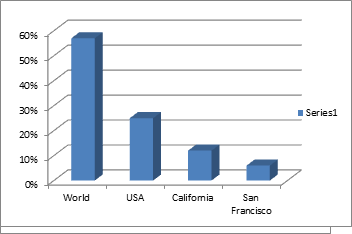
Crude percentage of population for selected diseases in USA
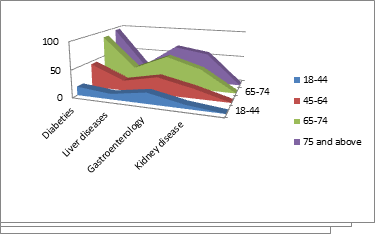
Trends in adult overweight and extreme obesity in genders
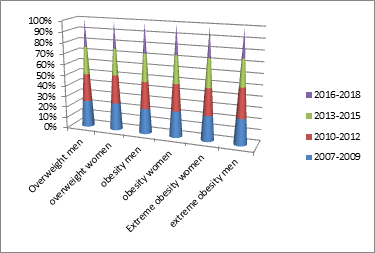
We gratefully thank all our wonderful Keynote Speakers, Speakers, Delegates, Students, Organizing Committee Members, Associations, Sponsors, Exhibitors and Media Partners for making our Past Digestive Diseases Congress (during 2015, 2016 & 2018 in USA Region) the best ever!
- 4th International Conference on Gastroenterology, July 20-22, 2015
Venue: Hyatt Regency Orlando International Airport, 9300 Jeff Fuqua Blvd, Orlando, Florida, USA, 32827
- 8th International Conference on Clinical Gastroenterology & Hepatology, October 3-5, 2016
Venue: Holiday Inn, Toronto International Airport , Address: 970 Dixon Road, Rexdale Toronto, ON M9W 1J9, Canada
- ​​ 2nd International Conference on Digestive Diseases, December 07-08, 2017
Venue: C/ Juan Ignacio Luca de Tena, 3628027 Madrid, Spain
////****////Mark your calendars for the upcoming conference, we are hoping to see you soon!////****////
Digestive Diseases Congress 2018
>|| Past Conferences Keynote Speakers ||<
We thank all our Honorable Keynote Speakers for their valuable presence, namely
- Dr. Debby Laukens, Ghent University, Belgium
- Dr. Larry I Good, Good Pharmaceutical Development Company, USA
- Dr. Osman Amine El-Labban, Al Zahra Private Hospital, UAE
- Dr. Khalid Alnemer, AL-Imam University, Kingdom of Saudi Arabia
- Dr. Mohamed El-Far, Mansoura University, Egypt
- Larry Good, Good Pharmaceutical Development Co. LLC, the USA
- Dr. Maxwell M Chait, Columbia University, USA;
- Dr. Khalil N Bitar, Wake Forest University, USA;
- Dr. Steven Teich,
- Dr. Patrick G Sullivan, University of Kentucky, USA
- Dr. Fawad Javed, University of Rochester, USA
- Dr. Anil K Mandal, University of Florida, USA
- Dr. Maria Faresjo, Jonkoping University, Sweden
- David H. Van Thiel, Rush University Medical Center, the USA
- Dr. Ahmed Zaki Helaly, Alexandria University, Egypt
- Dr. Fratila Ovidiu, University of Oradea, Romania
- Dr. Christain Dani, French National Institute for Health and Medical Research, France
>|| Past Conferences Chairs/Co-Chairs ||<
We extend our appreciation towards our Chairs and Co-Chairs of the sessions, namely
- Mary Es. Beaver, Texas Centre of Voice and Swallowing, USA
- Nisreene Mahmoud, Cairo University, Egypt
- Na Li, The Ohio State University, USA
- Abigail Basson, University of Western cape, South Africa
- Mrinal Pahwa, Sir Ganga Ram Hospital, India
- Joshua Ko, Hong Kong Baptist University, China
>|| Past Conferences Moderators ||<
Conference series LLC Ltd expresses its gratitude to the conferences Moderators, for taking up the responsibility to coordinate during the sessions, we are indebted to your support, namely
- Alessandro Antonelli, Universita Di Pisa, School of Medicine, Italy
- Adel Ahmed Mohmed Ahmed Elnaggar, Ain Shams University, School of Medicine, Egypt,
- Dr. Fawad Javed, University of Rochester, USA
- Jose Mario F. De Oliveira, Universidade Federal Fluminense, Brazil
- Joshua Ko, Hong Kong Baptist University, China
- Dr. Maxwell M. Chait, Columbia University, USA
- Dr. Abigail Basson, University of Western Cape, South Africa
- Bruno Doiron, University of Texas Health Science Center, USA
- Naomi Walsh, National Institute for Cellular Biotechnology, Ireland
- Dr. Anjana Vasudevan
>|| Past Conferences Sponsors/Exhibitors ||<
A very special thanks to our Sponsors, Ad-Sponsor and Exhibitors to have bestowed and their faith in collaborating with us to make this event a fruitful one. We hope you continue your support in our future endeavors.
- AbbVie
- PENTAX Medical
- AMT Surgical
- Qualisys Diagnostics Inc.
- ChiRhoClin, Inc.
- avexis, and more..
>|| Past Conferences Media Partners ||<
Conference series LLC Ltd offers its heartfelt appreciation to organizations such as Kindcongress, Bentham Science, HFSA, Tabeeby, Biohunter, Doctorksa, PharmaVision, Pink Medico, Medgadget, Event listing sites and other eminent personalities who supported the conferences by promoting in various modes online and offline which helped the conferences reach every nook and corner of the globe.
>|| Past Conferences Participant Affiliation ||<
It’s a special moment to express gratitude to all those organizations who supported to Conference series LLC Ltd .
- Ghent University, Belgium
- AL-Imam University, Kingdom of Saudi Arabia
- Mansoura University, Egypt
- Columbia University, USA
- Wake Forest University, USA
- University of Kentucky, USA
- University of Rochester, USA
- University of Florida, USA
- Jonkoping University, Sweden
- Rush University Medical Center, the USA
- Alexandria University, Egypt
- University of Oradea, Romania
- French National Institute for Health and Medical Research, France
- Cairo University, Egypt
- The Ohio State University, USA
- University of Western cape, South Africa
- Hong Kong Baptist University, China
- School of Medicine, Italy
- Ain Shams University, School of Medicine, Egypt,
- University of Rochester, USA
- Universidade Federal Fluminense, Brazil
- Hong Kong Baptist University, China
- Columbia University, USA
- University of Western Cape, South Africa
- University of Texas Health Science Center, USA
- National Institute for Cellular Biotechnology, Ireland
///****////Mark your calendars for the upcoming conference, we are hoping to see you soon!////****////
Conference Highlights
- Basic Science
- Biliary Tract Diseases
- Colorectal Diseases
- Functional GI and Motility Disorders
- Inflammatory Bowel Diseases
- Liver Diseases and Transplantation
- Microbiome in Gastrointestinal and Liver Diseases
- Obesity and Diabetes
- Pancreatic Diseases
- Pediatric GI and Nutrition
- Stomach and Small Bowel Disorders
- Gastrointestinal Oncology
- Technologies and Procedural Innovations
To share your views and research, please click here to register for the Conference.
To Collaborate Scientific Professionals around the World
| Conference Date | October 29-30, 2018 | ||
| Sponsors & Exhibitors |
|
||
| Speaker Opportunity Closed | |||
| Poster Opportunity Closed | Click Here to View | ||
Useful Links
Special Issues
All accepted abstracts will be published in respective Our International Journals.
- Journal of Gastrointestinal & Digestive System
- Journal of Inflammatory Bowel Diseases & Disorders
- Journal of Gastrointestinal Cancer and Stromal Tumors
Abstracts will be provided with Digital Object Identifier by





